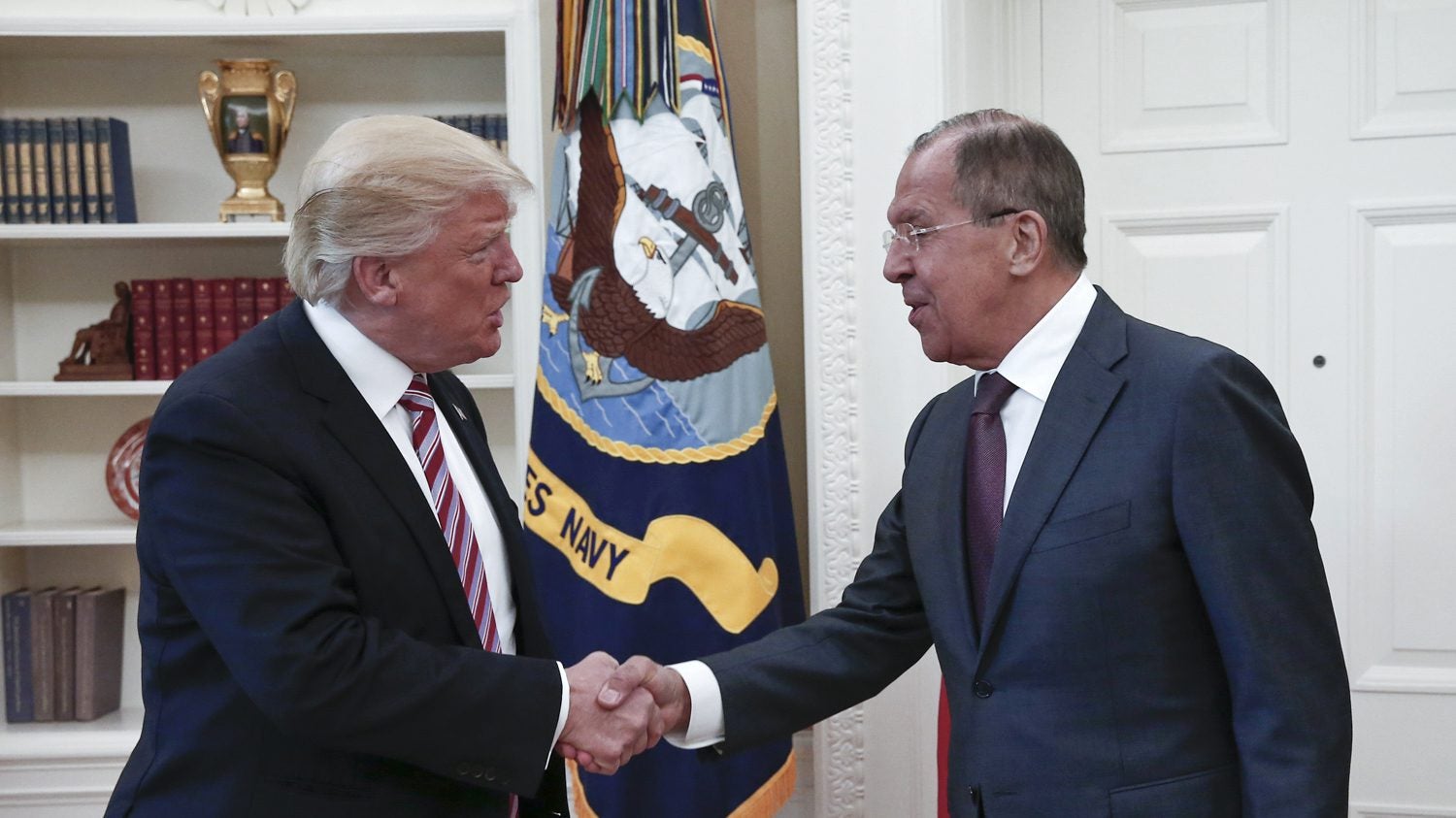No, Putin does not have a “recording” of Trump giving secrets to Russia’s foreign minister
The English-language internet was briefly set aflame this morning by reports that Russia’s president, Vladimir Putin, had offered a “recording” of the May 10 meeting in the Oval Office between US president Donald Trump, Russian foreign minister Sergei Lavrov, and ambassador Sergei Kislyak. Reports that Trump had inadvertently revealed highly sensitive intelligence to the Russians during the meeting left the White House scrambling this week and Congressional leaders demanding answers.


The English-language internet was briefly set aflame this morning by reports that Russia’s president, Vladimir Putin, had offered a “recording” of the May 10 meeting in the Oval Office between US president Donald Trump, Russian foreign minister Sergei Lavrov, and ambassador Sergei Kislyak. Reports that Trump had inadvertently revealed highly sensitive intelligence to the Russians during the meeting left the White House scrambling this week and Congressional leaders demanding answers.
Putin’s offer could have put the White House in a really difficult spot. Either US officials would have to admit that the Russians had been allowed to record the meeting, with their knowledge, which would have looked bad; or they would have to deny it, which would have looked worse if there did indeed turn out to be a recording.
But in fact the problem was one of translation: The word запись (zapis’) in Russian can mean either an audio or video recording, or a written record or transcript. And as an aide to Putin explained after the Russian president had made the remarks at a press conference, such a meeting with a foreign leader would have included a stenographer but not an audio recording. “The record [запись] is done by someone who is at the talks specifically for that purpose,” he said (link in Russian).
That led to a quick flurry of changed headlines: